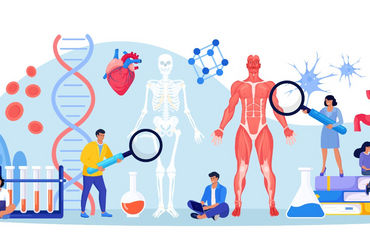Regular meat consumption can put you at health risk, finds UK study
Daily meat consumption increases heart attack, diabetes risksRegular meat consumption may be linked to an increased risk of several chronic health conditions, found a large-scale study published in UK-based BMC Medicine, titled “Meat consumption and risk of 25 common conditions: outcome-wide analyses in 475,000 men and women in the UK Biobank study”.Led by researchers at the University of Oxford, the study suggests that individuals who consume meat daily face a higher risk of developing health issues, particularly cardiovascular diseases. The research emphasises that overindulgence in meat can lead to long-term health complications.The study analysed data from 4,74,985 middle-aged adults enrolled in the UK Biobank between 2006 and 2010. Participants were followed until 2017, with an average follow-up period of 8 years.Meat intake was initially collected through a questionnaire, and for a sub-sample of about 69,000 individuals, dietary information was reassessed multiple times using an online 24-hour recall questionnaire.Participants who consumed meat regularly (three or more times per week) generally exhibited more adverse health behaviours and characteristics than those who ate meat less frequently.Higher consumption of unprocessed red and processed meat was associated with an increased risk of ischaemic heart disease. The results were consistent whether red or processed meat was considered separately or together.Poultry intake was linked to a higher risk of gastro-oesophageal reflux disease, gastritis and duodenitis, gallbladder disease, and diabetes.However, higher red meat and poultry intake was also associated with a lower risk of iron deficiency anaemia (IDA).Many of the observed health risks were significantly reduced after adjusting for Body Mass Index (BMI), indicating that adiposity (body fat) may partially mediate the relationship between meat intake and disease.The findings suggest that while meat can be a valuable source of nutrients like iron, excessive consumption especially of red and processed meat is associated with a greater risk of numerous health conditions. The study underscores the importance of balanced dietary choices, weight management, and moderation in meat consumption.

 |
| Daily meat consumption increases heart attack, diabetes risks |
Regular meat consumption may be linked to an increased risk of several chronic health conditions, found a large-scale study published in UK-based BMC Medicine, titled “Meat consumption and risk of 25 common conditions: outcome-wide analyses in 475,000 men and women in the UK Biobank study”.
Led by researchers at the University of Oxford, the study suggests that individuals who consume meat daily face a higher risk of developing health issues, particularly cardiovascular diseases. The research emphasises that overindulgence in meat can lead to long-term health complications.
The study analysed data from 4,74,985 middle-aged adults enrolled in the UK Biobank between 2006 and 2010. Participants were followed until 2017, with an average follow-up period of 8 years.
Meat intake was initially collected through a questionnaire, and for a sub-sample of about 69,000 individuals, dietary information was reassessed multiple times using an online 24-hour recall questionnaire.
Participants who consumed meat regularly (three or more times per week) generally exhibited more adverse health behaviours and characteristics than those who ate meat less frequently.
Higher consumption of unprocessed red and processed meat was associated with an increased risk of ischaemic heart disease. The results were consistent whether red or processed meat was considered separately or together.
Poultry intake was linked to a higher risk of gastro-oesophageal reflux disease, gastritis and duodenitis, gallbladder disease, and diabetes.
However, higher red meat and poultry intake was also associated with a lower risk of iron deficiency anaemia (IDA).
Many of the observed health risks were significantly reduced after adjusting for Body Mass Index (BMI), indicating that adiposity (body fat) may partially mediate the relationship between meat intake and disease.
The findings suggest that while meat can be a valuable source of nutrients like iron, excessive consumption especially of red and processed meat is associated with a greater risk of numerous health conditions. The study underscores the importance of balanced dietary choices, weight management, and moderation in meat consumption.
What's Your Reaction?



















































































